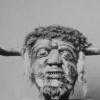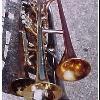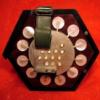All Activity
- Today
-
Bicycle riding and concertina playing re: Pain
Parker135 replied to richard's topic in General Concertina Discussion
I switched to a two wheeled recumbent a couple of years ago (age 74) due to neck problems.....too many years on drop bars, and bad posture involving bifocals and computer screens. The recumbent totally eliminated all those issues while riding. Now I sit relatively upright, look around easily, and still keep up with my riding buddies. I'm riding a Lightning P-38, but there are many good choices. Two wheeled recumbents are a bargain now. Most folks are going from their diamond frame bicycles to trikes. I'll probably do that someday but for now the P38 is a blast. -

Report: Tokyo meet-up with Gary Coover
gcoover replied to gtotani's topic in General Concertina Discussion
Hey Paul, so sorry to have missed you! Or perhaps we passed in the street or in the Shibuya Crossing unawares. It would have been great to meet you in person, and you would have loved meeting all the wonderful Japanese concertina players that Totani-san rounded up. I suppose we'll just have to schedule it for next year... Gary -
Salvi started following Superlative Сasual Dating - Authentic Damsels
-
Elevate your dating game with the top site for hassle-free connections. Verified Females [URL=https://matchnow.life]Top-notch Сasual Dating[/URL]
- Yesterday
-
It looks the same as one I have listed/illustrated in my 1939 Hess, Klingenthal catalogue, described as a ,,Cromatic"-Konzertina, and I've seen similar examples that have a piano-system right-hand side, with a German-concertina diatonic left-hand side, just like it. It's late here now, but I'll scan, and post, the listing tomorrow.
-

Lachenal 56key Maccan Duet in good order. RHS goes down to middle C
wes williams replied to Dirge's topic in Buy & Sell
Dirge has dropped his original price by a couple of hundred, so be quick! -
And guess who bought the beast 😁. It'll be a bit too big for standing up playing after my usual 46 Maccann and Jeffries and Lachenal Anglos 😆. So c'mon all you folks who want a Maccann, the 56 is a very good starter that you can do a lot on!
-
I've added the ability to import MIDI files directly into the tool. You can open them just like any ABC or MusicXML file, or drag and drop a MIDI file onto the editor. I'm doing this using the MIT Music21 Python library wrapped in a web service I've created. I consider this very much an experimental feature. It generally works well with fairly simple MIDI files, but completely depends on the quality of the MIDI file itself. It may sometimes produce complete garbage, odd results, fail, or even crash or lock up the tool when it tries to render the notation for the output of the Music21 MIDI converter. In general, MIDI files that are real-time capture of a live player are probably going to result in a mess. MIDI files that are exported from other software, or the tool itself tend be very clean and transcode nicely to ABC. If the tool crashes during notation rendering after MIDI import is complete, reload the page to restart. Imported notes are quantized to sixteenth note durations. MIDI Import is limited to a maximum MIDI file length of 30 KBytes. Demo video: Other features that have been added since I last posted here: MusicXML export for one or all of the tunes. (Tool could already read MusicXML files) Ability to change the beat duration fraction for the boom/chick backup bass and chords. Robust support for a wide variety of reverb styles, including custom convolution impulse models. Reverb is even available in exported .wav and .mp3 files of tunes.
-
Right the 81 is sold and no longer available (thank you!) and I've put another ad up for the 56.
-
Overhauled shortly before covid times by Mike Acott who overhauled it, brought it up to concert tune and rebound the bellows. It's never really been played in since and is ready to go. No gauze inside the fretwork. No box (maybe a tin one from a German concertina) It's currently in NZ but if you're in the Antipodes and interested you need to be quick because I'm coming to England shortly and will bring it with me. If not previously sold it goes on Ebay. £1275 to you. Get it quick!
- 1 reply
-
- 1
-

-
Bicycle riding and concertina playing re: Pain
Tiposx replied to richard's topic in General Concertina Discussion
I play and I ride. I don’t find that there are any conflicts, but I agree with previous comments about making the bike comfortable. It took me over a year and 2000 miles to make my first bike fit me really well. I have heard other cyclists say that it took them two years! My fit involved changing almost every part that would unbolt, one by one and evaluating the effect. My subsequent bikes were much easier to fit, as I knew what measurements I needed. in particular I would avoid too low a handlebar, and too long a stretch to achieve comfort. The two vital measurements for a good fit are known as “stack” and “reach”. I use the same measurements on all my bikes, regardless of their design (mtb, gravel, folding and hybrid) It is quite an involved subject. Tiposx -
Bicycle riding and concertina playing re: Pain
richard replied to richard's topic in General Concertina Discussion
Thanks for the input. For now I plan on replacing the straight handlebars with ones with a back sweep. My impression is that the back sweep bars would put ones wrists in a more neutral and natural position. I will make sure the saddle height and handlebar height work to have me sitting so I have less leaning over. And I got a softer seat. I will try that and see how I feel. -
Bicycle riding and concertina playing re: Pain
Cathasach replied to richard's topic in General Concertina Discussion
I've had this problem and it can be alleviated with the right bike and right set up. I had to switch to a recumbent due to shoulder pain on a regular bike before I even started playing concertina, and generally a semi-upright recumbent is my preference. I've got 20+ years in the bike industry so feel free to ask me anything you need to know. -
I wonder if the left hand side is a very small accordion type bass, as seen on some very small piano accordions.
-
David Barnert started following What is this
-
From the right side it looks like a Jedcertina, which mimics a piano keyboard (white notes and black notes laid out as expected), but the Jedcertina has the same pattern on both sides and this one doesn’t. I don’t know what to make of the pattern on the left. I’ve never seen one like this.
-
What kind of concertina is this? https://auctionet.com/sv/3371045-concertina
-
acnemoldriot joined the community
-

Bicycle riding and concertina playing re: Pain
Don Taylor replied to richard's topic in General Concertina Discussion
I get numbness in my hands when playing the concertina and when riding my bike. This is alleviated by avoiding craning or bending my neck as much as possible. This meant learning not to look at the buttons when playing the concertina and raising the handlebars on my bike as high as possible. I use a handlebar stem extension to further elevate the handlebars. -

Report: Tokyo meet-up with Gary Coover
Paul_Hardy replied to gtotani's topic in General Concertina Discussion
Yes, it was spectacular, both in Tokyo, and later on the Nakasendo trail and in Kyoto (the Philosopher's Path). On return to Tokyo two weeks later, there was no blossom, but the azaleas were out. I gather that the bloom was later than recent years because of a cold spring there (and in the UK also). -
Bicycle riding and concertina playing re: Pain
Stephen DOUGLASS replied to richard's topic in General Concertina Discussion
Bike riding, like playing concertina can start off as a 'dabble'. Pretty soon you could be looking for your upgrade, and spending many hours in the saddle, which can be rewarding in many ways, but eats into your practice time on your chosen instrument/s. I have experience of this. I certainly got aches, but I never got debilitating pain, but I do think that spending plenty time riding, may have caused my hands to be slightly less dexterous, especially after a long ride. Is it long term? TBH the jury is out on that, might be other factors too. But the benefits possibly outweigh the downside. Bike riding can mitigate diabetes and the accompanying neuropathic symptoms allowing some of us to continue playing for many years. -

Bicycle riding and concertina playing re: Pain
AndyNT replied to richard's topic in General Concertina Discussion
Richard, if you get your bike sized and set up for you then you should have no problems. I mainly ride a touring bike with drop handle bars, however my riding position is relaxed and reasonably upright, not hunched over like a racer. However I also ride a straight bar mountain bike from time to time. One important thing to watch is your wrist position when riding, they should be straight and relaxed, not twisted, sideways or upwards. If they are, then you need to change something. It could be the angle of the brake levers on straight bars, or the angle of the drop bars, or ....... Just make sure you are comfortable on your bike, then you will enjoy it. Take the time to get the saddle and handlebar heights just right - 1cm can make a big difference to your comfort 😀 -

Report: Tokyo meet-up with Gary Coover
gtotani replied to gtotani's topic in General Concertina Discussion
Gary, Glad to know you are safe back home and thank you for detailed report. All the cherry blossoms are gone, and summer is coming on fast! Most of the concertina players gathered there have X (Twitter) accout and there are number of posts (tweets) related to your visit. They are all in Japanes, but I think you will enjoy. コンサーティーナの Gary Coover さんを囲む会 2024年4月7日 at お茶の水 - Togetter Totani -

Report: Tokyo meet-up with Gary Coover
gtotani replied to gtotani's topic in General Concertina Discussion
Hello, Paul, Wow, so your first visit to Japan was flourished (literally) by full bloom of Sakura! You are very lucky. Please do come again. Totani -
It still seems a little odd that they didn't just use the wording that was extremely common in those days: "Made in England".
-

Bicycle riding and concertina playing re: Pain
adrian brown replied to richard's topic in General Concertina Discussion
The Netherlands has a relaxed attitude to bicycle riding, you should try one that we call an Omafiets over here, they are very comfortable to ride and put no pressure on your hands. Of course it is possible to do both at the same time... Adrian - Last week
-

Bicycle riding and concertina playing re: Pain
Ken_Coles replied to richard's topic in General Concertina Discussion
My own experience is I have no use for the straight across handlebars that are so fashionable that they are all you can get on many models of bikes. They cock my wrist and bring back the inflammation in my carpal tunnels (originally aggravated by concertina playing). They were designed for kids mountain biking up and down staircases, not the rest of us. I'm not interested in leaning way over to use racing handlebars. For me best are the sort that were common 50 or 60 years ago - they bend toward the rear of the bike and can be adjusted so my wrists and forearms are in a fairly neutral position. Ever since losing concertina playing during all of 1999 (which included my only trip to Ireland to date) to carpal tunnel inflammation, I have no patience with non-ergonomic equipment and refuse to use it. Ask my employer, who has provided one new desk and one new desk chair so far. Ken -
Bicycle riding and concertina playing re: Pain
Dimble replied to richard's topic in General Concertina Discussion
No first hand experience, but have you considered a recumbent bike?






